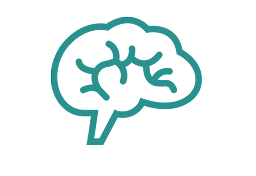
Symptoms, causes and treatments for diabetes in children
Treating diabetes in children is different from treating adults. Learn the main causes of childhood diabetes and which symptoms to look for.

A gentle reminder: Living with type 2 diabetes means looking after not just your blood sugar, but your whole self, including your brain.
Research shows that people with diabetes are more likely to develop Alzheimer’s and other forms of dementia.1-3 The good news is that there are many positive steps you can take now that may protect your brain health in the future.
You don’t have to face this alone. Talk to your diabetes care team today to devise a plan for how you can manage your risk.
What you should know
To help guide you, here are a few simple facts to know about diabetes and your brain:
Increased risk
Type 2 diabetes can increase your chance of developing Alzheimer’s or other dementias1-3
Get tested
If you think that you might have symptoms of Alzheimer’s, talk to your doctor about screening tests
Early signs
Early changes in memory, thinking or mood are worth paying attention to
Team support
Talking openly with your healthcare team is a strong first step towards protecting your brain health.
People with type 2 diabetes are 53% more likely to develop Alzheimer’s.1-3 Almost a quarter of people living with Alzheimer’s also have diabetes.4
Often, small changes in memory or thinking appear years before a diagnosis.2 That’s why it’s so important to act now if you notice small changes in memory or clarity of thinking. By discussing it early with your healthcare team and devising a risk management plan, you can make a difference now that may protect your future.
Diabetes can affect the brain in several ways:2,5,6
It can cause inflammation that makes brain cells less healthy
High blood sugar, blood pressure, cholesterol, and extra weight can damage tiny blood vessels in the brain
Changes to the brain’s reaction to high blood sugar can reduce how well brain cells communicate
It may lead to a build-up of proteins called amyloid plaques linked with Alzheimer’s
The hopeful news? The same healthy habits that protect your heart and kidneys (keeping your numbers in range, staying active, and caring for your weight) also support your brain.
We all forget things sometimes, but certain changes deserve more attention:7

If you notice these changes in yourself or someone you care about, reach out to your doctor. Seeking help early doesn’t mean there’s something “wrong”. It simply gives you the chance to work out a plan with your doctor. Together you can plan how to manage any risk your diabetes might have on developing Alzheimer’s. Knowledge is power and knowing now can empower you to offset any risk identified in the future.
You don’t have to be alone with this, finding a community can help you with your questions and concerns.
If you’re feeling worried, or if loved ones have noticed changes, please don’t keep it to yourself.
Speaking with your doctor, diabetes nurse, or another healthcare professional early on means you’ll have support at your side. Together, you can explore what’s happening and take steps to care for both your diabetes and your brain health.

HQ25SMAD00003



